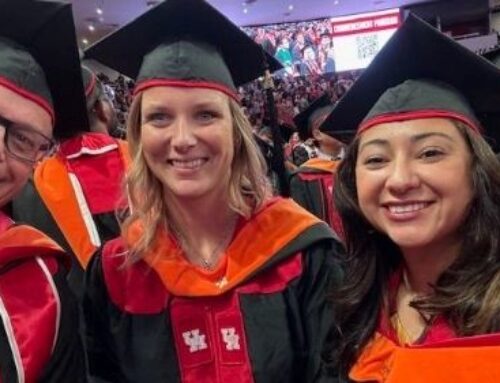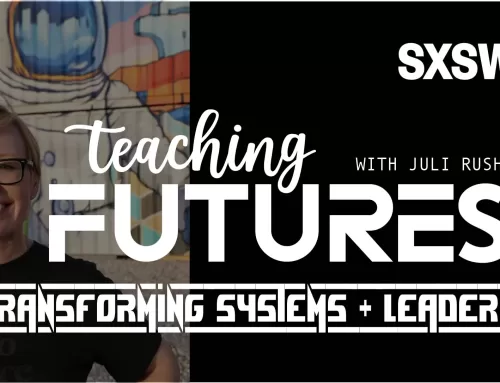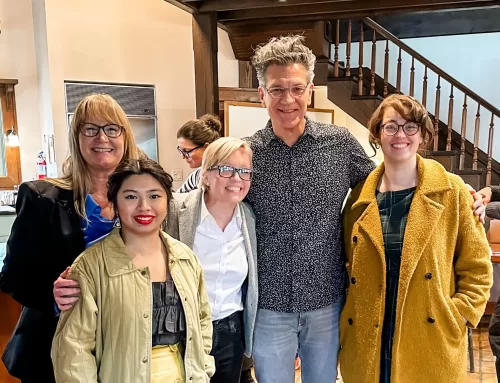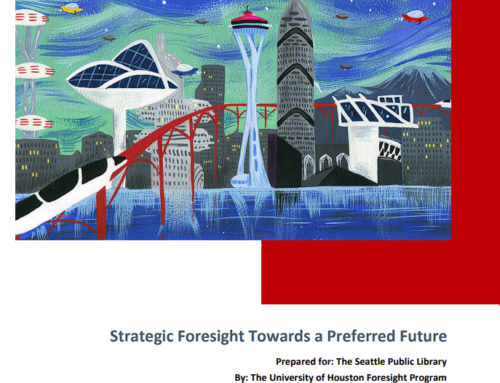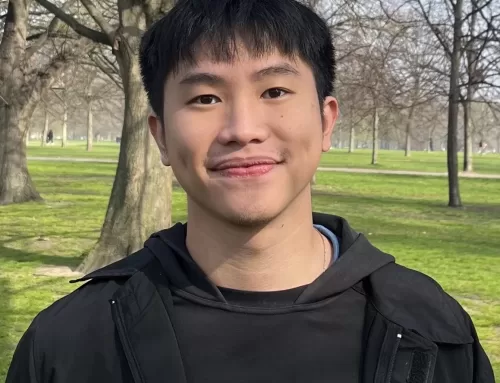Contributor: Lavonne Leong
NOTE: In Pro Seminar class, students are assigned to write a brief piece explaining foresight to a general audience (not to futurists). We will be sharing some of these excellent pieces.
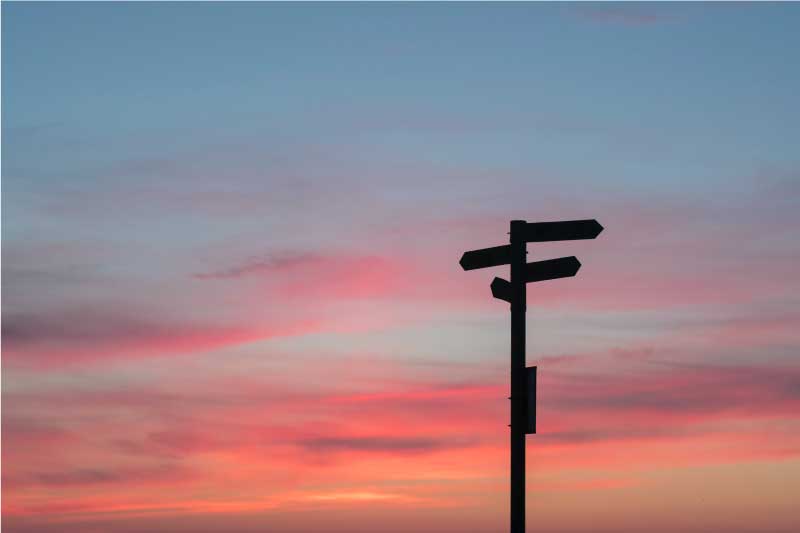
Adapted from “Foresight in the Media Assignment”
- The public is already curious about futurists; they just don’t know it. The future is an inherently sexy subject. Everybody wants to see into the future.
- But because of that, it’s already been precolonized. The fact that tarot card readers, rune throwers, crystal ball readers, science fiction writers and “the end is nigh” monotheist doomsayers have already been hanging out in this space for centuries, and that there’s a certain amount of unsavoriness associated with talking about what’s coming up, is not a bad thing!
- It does mean that a certain amount of hearts-and-minds re-education is going to have to happen, and that’s a separate process/skill. When there are public jabs and minimizations, that’s not an opportunity to shrivel, it’s an opportunity to educate in a large forum.
- But no member of the public is going to stick around for internal squabbling. They just want to a. know what the field is called, b. know what the profession is called, c. have those two things sound related to each other (i.e. physics and physicists.) There might have to be some clean-up involved (i.e. “Physicists and physicians are very different”), but clear and consistent terminology is necessary to make any headway in a public space.
- The public is only going to care about what a futurist is, if they feel futurists will benefit or engage with them directly. Futurists used to be behind-the-scenes advisors to decisionmakers, but being the advisor behind the throne also makes us very vulnerable to regime change. Which, let’s face it, is happening more frequently. In the case of government, it’s inbuilt into term limits. But everything is flattening its structure—at least in the West. Organizations are flattening. Social media has flattened access to celebrities. People are used to having access, and if there’s no access, then they’re not interested. The dominant metaphor for our times has changed from a hierarchical triangle to something more profusely interconnected: the network, or maybe rhizomes. As of two weeks ago, even Sohail Inayatullah is giving a “personal futures masterclass.”
- What the public wants and needs out of futures work and what foresight provides are slightly misaligned, and that is a persistent challenge, but it may also be where we can make the most difference. The public (and clients) want to know what the future is going to be, so they can make decisions based on those directions. They want a fortuneteller. What they actually need is an understanding (which they are probably closer to, with the pandemic) that the future exists only as a series of probable outcomes, and that understanding how to read momentum, knowing how to foresee and account for possible long-term outcomes, having a vision in line with your values, and knowing how to put pressure on the present, is more likely to move you toward a future you want, created from the reality that exists.
- We train for years, but these basic concepts can be communicated on a very basic level in maybe 90 minutes. The better we can communicate these things in an accessible, uncondescending way, the fresher and more fit-to-the-current-environment we will feel—and the more people we will reach. Which means, ultimately, the more clients we will have, because those people will fan out into the professional world…and eventually hire us.
- I think the main thing the North American public could really use from foresight is how to reckon with one of the largest mental shifts they have ever experienced: the shift in the public story about the future. Between 1945 and maybe 2011, we had a dominant progress story. North Americans were the winners of the Cold War, the inventors of the metaverse, and things were just going to get better and better until we ended up in the Jetsons. Things like the recession were mere flesh wounds. Now the wheels are coming off capitalism and the United States political machine and global climate stability, with a pandemic and war in Ukraine thrown in.
In the past ten years, our continent has gone from a dominant progress story to a dominant decline story, which expresses itself differently depending on which way you lean politically (e.g. “Make America Great Again” and “climate change/the decline of the US”) but has a shared trajectory. I think it’s not going too far to say that this is our main challenge—how do we meet the future with both a lot of agency and a lot of clear-eyed realism? Liberals have all the realism, but haven’t had a ton of agency. MAGA folks have a lot of agency, but perhaps less of a reality-based approach. There’s a middle ground between depression and psychosis, and futurists can be good guides to how to walk it.
About the Contributor
 Lavonne Leong is a master’s candidate in the University of Houston Foresight program, and an associate editor at the academic journal World Futures Review. She has a doctorate in English Language and Literature from Oxford University, and lives in British Columbia with her family.
Lavonne Leong is a master’s candidate in the University of Houston Foresight program, and an associate editor at the academic journal World Futures Review. She has a doctorate in English Language and Literature from Oxford University, and lives in British Columbia with her family.

